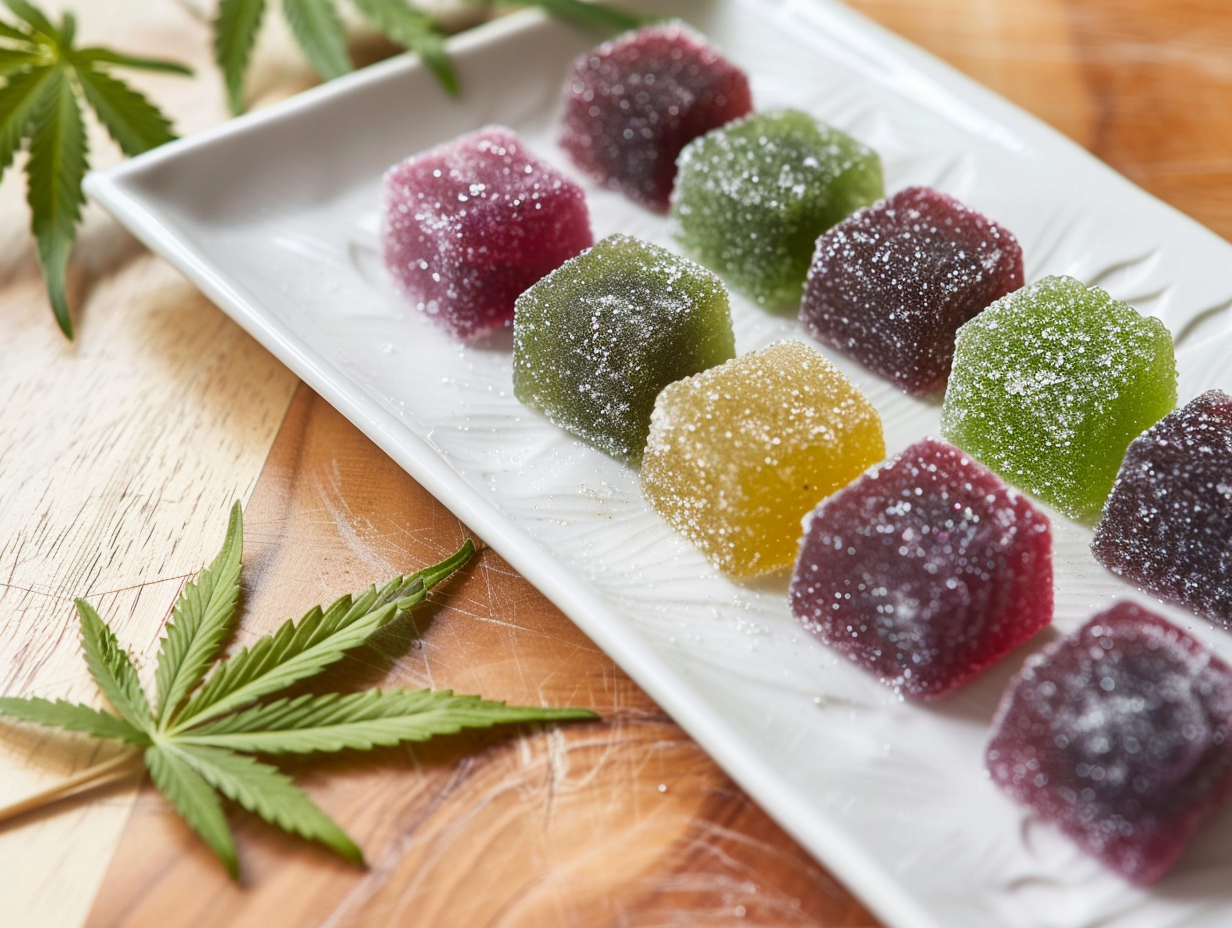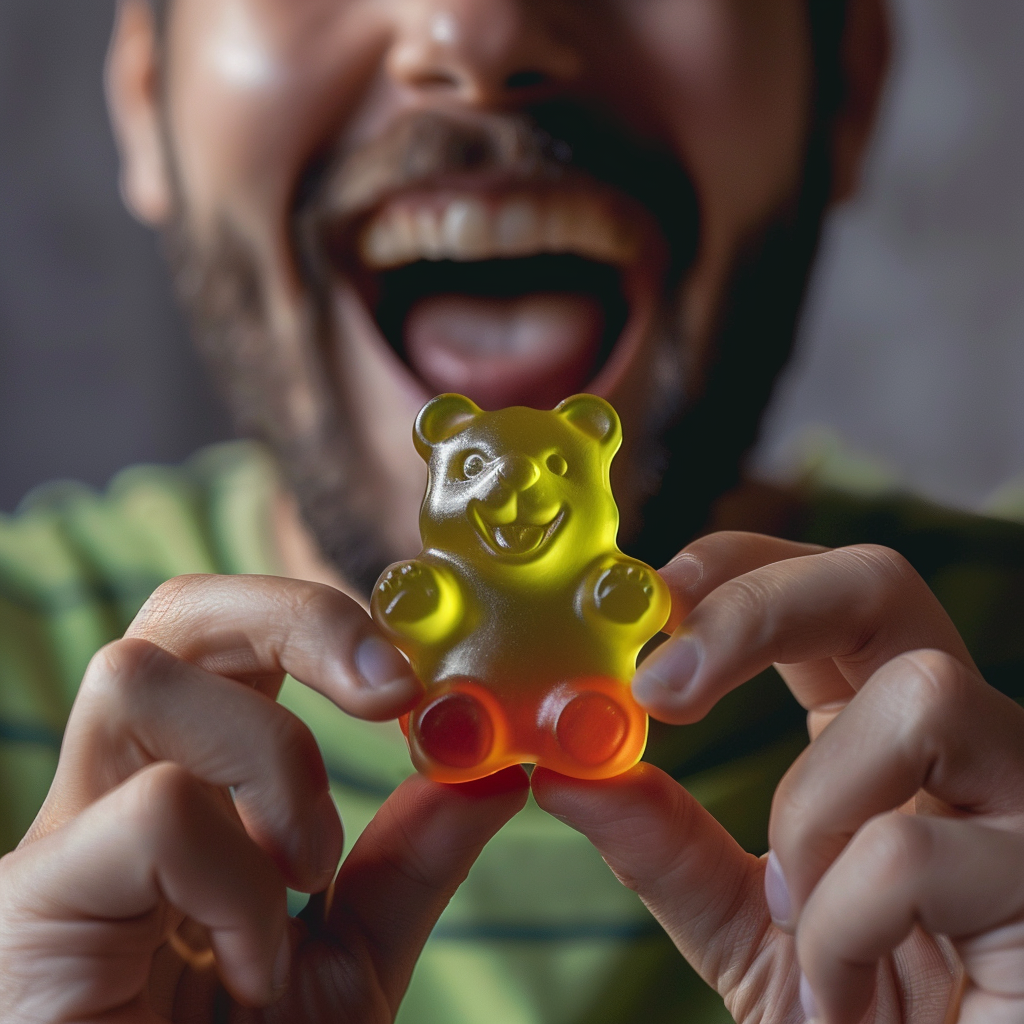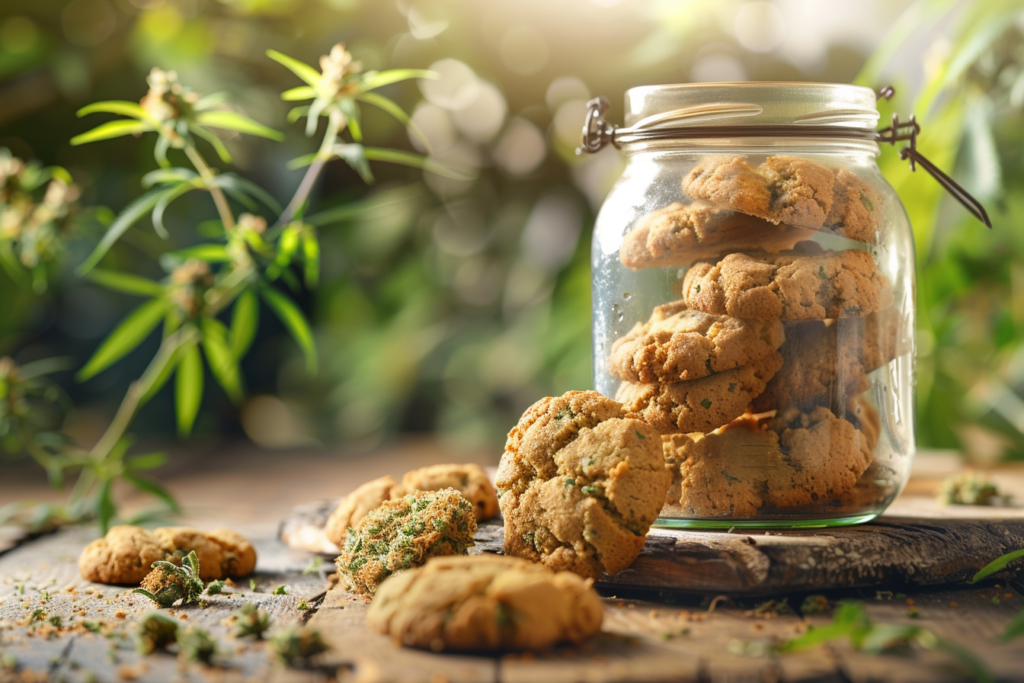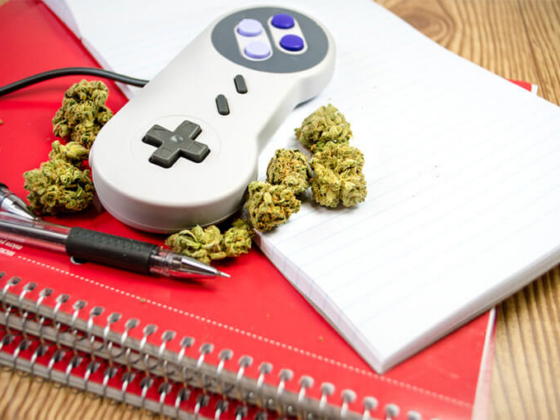Edibles have become a popular method of consuming cannabis, especially among those who prefer not to smoke. However, dosing edibles can be tricky, especially for beginners. This comprehensive guide addresses the most frequently asked questions about the best practices for dosing edibles. Whether you’re new to edibles or looking to refine your approach, this guide covers everything you need to know.
How Should Beginners Start Dosing Edibles?
When starting with edibles, it’s crucial to approach with caution to ensure a safe and enjoyable experience.
- Understanding THC Content: Edibles are typically measured in milligrams (mg) of THC, the primary psychoactive component of cannabis. Beginners should start with a low dose, usually around 2.5 to 5 mg of THC.
- Start Low, Go Slow: One of the golden rules of edibles is to start with a low dose and increase gradually. This approach allows you to gauge your tolerance and avoid overconsumption.
- Wait Before Redosing: Edibles take longer to kick in compared to smoking or vaping. It can take anywhere from 30 minutes to 2 hours to feel the effects. Always wait at least 2 hours before considering another dose.
- Choose the Right Product: There are various types of edibles, including gummies, chocolates, and beverages. Choose a product that clearly labels the THC content per serving.
- Consider CBD Edibles: CBD can counteract some of the psychoactive effects of THC. Starting with a product that contains both THC and CBD can provide a more balanced experience.
- Read the Label: Pay close attention to the product label for information on THC content, serving size, and ingredients.
- Be in a Comfortable Environment: Consume edibles in a familiar and comfortable setting, ideally with friends or family who can support you if needed.
- Stay Hydrated and Eat Well: Drinking water and having some food in your stomach can help moderate the effects of edibles.
- Know Your Limits: Everyone’s body reacts differently to THC. Listen to your body and know when to stop.
- Keep a Journal: Documenting your experiences with different dosages and products can help you find the right balance for your needs.
What Are the Differences Between Edible Types?
Understanding the differences between various types of edibles can help you make more informed choices.
- Gummies: Gummies are popular for their taste and precise dosing. Each gummy usually contains a specific amount of THC, making it easy to control your intake.

- Chocolates: Cannabis-infused chocolates offer a delicious alternative to gummies. They can be divided into smaller pieces to manage dosage effectively.
- Beverages: Cannabis-infused drinks provide a refreshing way to consume edibles. Beverages can have varying onset times depending on the ingredients and your metabolism.
- Baked Goods: Cookies, brownies, and other baked goods are classic edibles. However, it’s harder to ensure even distribution of THC in homemade baked goods.
- Capsules: Capsules offer a discreet and precise way to consume cannabis. They are easy to dose and convenient for on-the-go use.
- Tinctures: Tinctures can be used sublingually (under the tongue) for faster absorption or added to food and drinks. They allow for precise dosing and quick adjustments.
- Savory Snacks: For those who prefer savory over sweet, there are options like cannabis-infused chips or popcorn. These can be a great alternative but may be harder to dose accurately.
- Topicals: While not consumed orally, cannabis-infused creams and balms can provide localized relief without psychoactive effects.
- Homemade vs. Commercial: Homemade edibles can be cost-effective but may lack precise dosing. Commercial products are regulated for consistent THC content.
- Onset and Duration: Different edibles have varying onset times and durations. Beverages and tinctures may act faster, while baked goods and chocolates may take longer to feel effects but also last longer.
How Long Does It Take for Edibles to Kick In?
The onset time for edibles varies based on several factors.
- Metabolism: Individual metabolic rates can significantly affect how quickly you feel the effects of edibles. Faster metabolisms may feel effects sooner.
- Empty vs. Full Stomach: Consuming edibles on an empty stomach can lead to faster onset but potentially more intense effects. Eating edibles with food can slow down the absorption.
- Type of Edible: Beverages and tinctures often have quicker onset times compared to baked goods or gummies. This is due to the way they are absorbed in the body.
- Dose and Potency: Higher doses and more potent products may have quicker and more pronounced effects. Always start with a low dose to gauge your reaction.
- Body Composition: Factors such as weight, body fat percentage, and overall health can influence how quickly and intensely you feel the effects.
- Tolerance Level: Regular cannabis users may have higher tolerances, which can affect the onset time and intensity of the high.
- Method of Consumption: Sublingual consumption (under the tongue) can lead to faster effects compared to edibles that need to be digested.
- Product Ingredients: The presence of other cannabinoids and terpenes can influence the onset time and overall experience.
- Hydration Levels: Staying hydrated can impact how your body processes edibles.
- Psychological Factors: Your mindset and environment can also play a role in how quickly you feel the effects.
How to Safely Increase Edible Dosage?

Increasing your edible dosage should be done carefully to avoid unpleasant experiences.
- Small Increments: Increase your dosage by small increments, such as 2.5 mg of THC at a time. This allows you to find your optimal dose without overconsuming.
- Keep Track: Document your experiences with different dosages. Note the effects and how long they lasted.
- Wait Between Doses: Always wait at least 2 hours before taking more edibles. This ensures you don’t overconsume while waiting for the effects to kick in.
- Use Consistent Products: Stick to the same brand and type of edibles when experimenting with dosage. This provides more predictable results.
- Consult a Professional: If you’re unsure about increasing your dosage, consider consulting a healthcare professional or knowledgeable budtender.
- Understand Tolerance: Your tolerance may change over time. Regular users might need higher doses compared to occasional users.
- Mix with CBD: Adding CBD to your regimen can help balance the psychoactive effects of THC, providing a more comfortable experience.
- Avoid Alcohol: Mixing edibles with alcohol can intensify the effects and lead to unpleasant experiences. Stick to one substance at a time.
- Be Patient: Finding your ideal dose can take time. Be patient and avoid rushing the process.
- Listen to Your Body: Pay attention to how your body reacts and adjust your dosage accordingly.
What Are the Common Side Effects of Edibles?
Understanding the potential side effects of edibles can help you prepare and respond appropriately.
- Delayed Onset: One of the most common issues is the delayed onset of effects, leading some to consume more than intended.
- Overconsumption: Taking too much can result in intense and prolonged effects, which can be uncomfortable and overwhelming.
- Dry Mouth: Also known as “cottonmouth,” dry mouth is a common side effect. Staying hydrated can help mitigate this.
- Drowsiness: Edibles can make you feel sleepy or lethargic, especially at higher doses.
- Paranoia and Anxiety: Some users may experience heightened anxiety or paranoia, particularly if they consume too much THC.
- Impaired Motor Skills: Edibles can affect your coordination and motor skills. Avoid driving or operating heavy machinery after consuming edibles.
- Gastrointestinal Issues: Some people may experience nausea or digestive discomfort after consuming edibles.
- Increased Heart Rate: THC can cause a temporary increase in heart rate. Those with heart conditions should be cautious.
- Mood Changes: Edibles can influence your mood, leading to euphoria or, conversely, irritability and mood swings.
- Tolerance Development: Regular use of edibles can lead to increased tolerance, requiring higher doses to achieve the same effects.
How to Store Edibles Properly?

Proper storage of edibles ensures their potency and safety.
- Cool, Dark Place: Store edibles in a cool, dark place to prevent degradation of cannabinoids.
- Airtight Containers: Use airtight containers to keep edibles fresh and prevent exposure to air and moisture.
- Labeling: Clearly label your edibles with the type, dosage, and date of preparation or purchase.
- Keep Away from Children and Pets: Store edibles out of reach of children and pets to prevent accidental ingestion.
- Refrigeration: Some edibles, like baked goods, may require refrigeration to maintain freshness.
- Freezing: If you have a large batch of edibles, consider freezing them in portions to extend their shelf life.
- Avoid Humidity: Excess moisture can lead to mold growth, especially in homemade edibles. Keep them in a dry environment.
- Secure Storage: Use child-proof containers or lockboxes to ensure safety.
- Expiration Dates: Pay attention to expiration dates on commercial products and consume them before they go bad.
- Regular Checks: Periodically check your stored edibles for signs of spoilage or degradation.
What Are the Legal Considerations for Edibles?
Understanding the legal landscape of edibles is crucial for responsible consumption.
- State Laws: Cannabis laws vary widely by state. Make sure you are aware of the regulations in your area regarding the purchase, possession, and consumption of edibles.
- Age Restrictions: Most states have age restrictions for purchasing and consuming cannabis products. Typically, you must be 21 or older.
- Public Consumption: Consuming it in public places is often prohibited. Stick to private residences or designated consumption areas.
- Driving Laws: Driving under the influence of cannabis is illegal. Wait until the effects have completely worn off before operating a vehicle.
- Travel Restrictions: Carrying edibles across state lines or on airplanes is illegal, even if both locations have legalized cannabis.
- Home Cultivation: Some states allow home cultivation of cannabis, but there are often limits on the number of plants and the amount you can possess.
- Purchase Limits: Be aware of the legal limits on how much cannabis you can purchase at one time. This varies by state and product type.
- Packaging Requirements: Legal edibles must meet specific packaging requirements, including child-resistant packaging and clear labeling.
- Employment Policies: Some employers have policies against cannabis use. Understand your workplace’s stance on cannabis before consuming it.
- Federal Laws: Cannabis remains illegal at the federal level in the United States. Be cautious about federal property and federal employment regulations.
What to Do If You Overconsume Edibles?
Accidentally consuming too much can be an uncomfortable experience. Here’s how to manage it.
- Stay Calm: Panicking can make the situation worse. Remind yourself that the effects are temporary and will pass.
- Find a Safe Space: Go to a comfortable, familiar place where you can relax.
- Stay Hydrated: Drink water to stay hydrated and help your body process the THC.
- Eat Something: Consuming a light snack can help mitigate the effects of THC.
- Distract Yourself: Engage in a calming activity, like watching a movie or listening to music, to take your mind off the effects.
- Use CBD: If available, CBD can help counteract the psychoactive effects of THC.
- Avoid Alcohol: Mixing alcohol with cannabis can intensify the effects and make you feel worse.
- Rest: Sometimes, the best solution is to lie down and rest until the effects wear off.
- Seek Support: If you’re with friends or family, let them know you’re not feeling well and ask for their support.
- Know When to Seek Help: If you experience severe symptoms, such as difficulty breathing or chest pain, seek medical attention immediately.
How Do Edibles Affect Different People?
Individual reactions to edibles can vary widely.
- Body Chemistry: Each person’s body chemistry affects how they process THC. Factors include metabolism, weight, and overall health.
- Previous Experience: Cannabis veterans may have a higher tolerance and require higher doses compared to beginners.
- Psychological State: Your mood and mental state can influence your experience with edibles. Anxiety or stress can heighten the effects.
- Diet: What you’ve eaten before consuming it can impact how quickly and intensely you feel the effects.
- Hydration Levels: Being well-hydrated can help moderate the effects of edibles.
- Sleep Patterns: Your sleep habits and overall fatigue levels can influence how it affect you.
- Gender Differences: Some studies suggest that men and women may metabolize THC differently, leading to variations in effects.
- Tolerance Levels: Regular users often develop a tolerance, requiring higher doses for the same effects.
- Age: Younger individuals may metabolize THC differently than older adults.
- Overall Health: Chronic conditions and medications can interact with THC, altering its effects.
How Can You Make Edibles at Home?
Making your own edibles can be a rewarding experience, allowing for customization and control over ingredients.
- Decarboxylation: Before adding cannabis to food, it must be decarboxylated to activate the THC. This involves baking the cannabis at a low temperature (around 240°F) for 30-40 minutes.
- Infusing Oil or Butter: Cannabis-infused oil or butter is a common base for homemade edibles. Simmer the decarboxylated cannabis in oil or butter for a few hours to infuse.
- Straining: After infusing, strain out the plant material using a cheesecloth or fine mesh strainer.
- Measuring Dosage: Calculate the THC content of your infusion to ensure accurate dosing in your edibles.
- Recipes: Incorporate the infused oil or butter into your favorite recipes, such as cookies, brownies, or savory dishes.
- Experiment with Ratios: Adjust the ratio of cannabis to oil or butter based on your desired potency and serving size.
- Labeling: Clearly label your homemade edibles with the dosage and type of cannabis used.
- Storage: Store homemade edible in a cool, dark place to maintain potency.
- Test in Small Batches: Start with small batches to test potency and adjust recipes as needed.
- Enjoy Responsibly: Remember to start with a low dose and wait for the effects before consuming more.
Conclusion
Dosing edibles for beginners can be a nuanced process, but with careful consideration and adherence to best practices, you can enjoy a safe and pleasurable experience. Start low, go slow, and always be mindful of your environment and personal limits. Whether you prefer gummies, chocolates, or homemade treats, understanding how edibles work and how they affect you is key to a positive experience. Stay informed, stay safe, and enjoy the journey.
FAQ
What should I do if I accidentally eat too much THC?
Stay calm, hydrate, and find a safe space. Distract yourself with calming activities and seek support if needed. If severe symptoms occur, seek medical attention.
Can I mix different types of edibles?
Yes, but be mindful of the total THC dosage. Mixing it can lead to unpredictable effects, so it’s best to experiment cautiously.
How long do the effects of edibles last?
The effects of edibles can last anywhere from 4 to 12 hours, depending on the dosage, type of edible, and individual metabolism.
What is the difference between THC and CBD edibles?
THC edibles are psychoactive and produce a ‘high,’ while CBD edibles do not have psychoactive effects and are often used for therapeutic purposes
Are there any health benefits to consuming edibles?
Edibles can offer various health benefits, such as pain relief, anxiety reduction, and improved sleep. However, effects vary by individual.
How do I know if an edible is right for me?
Consider your experience level, desired effects, and any medical conditions. Start with a low dose and consult a healthcare professional if unsure.
Can edibles help with sleep disorders?
Yes, many people find that THC or CBD edibles can help improve sleep quality and duration. Consult with a healthcare professional to find the best option for you.




